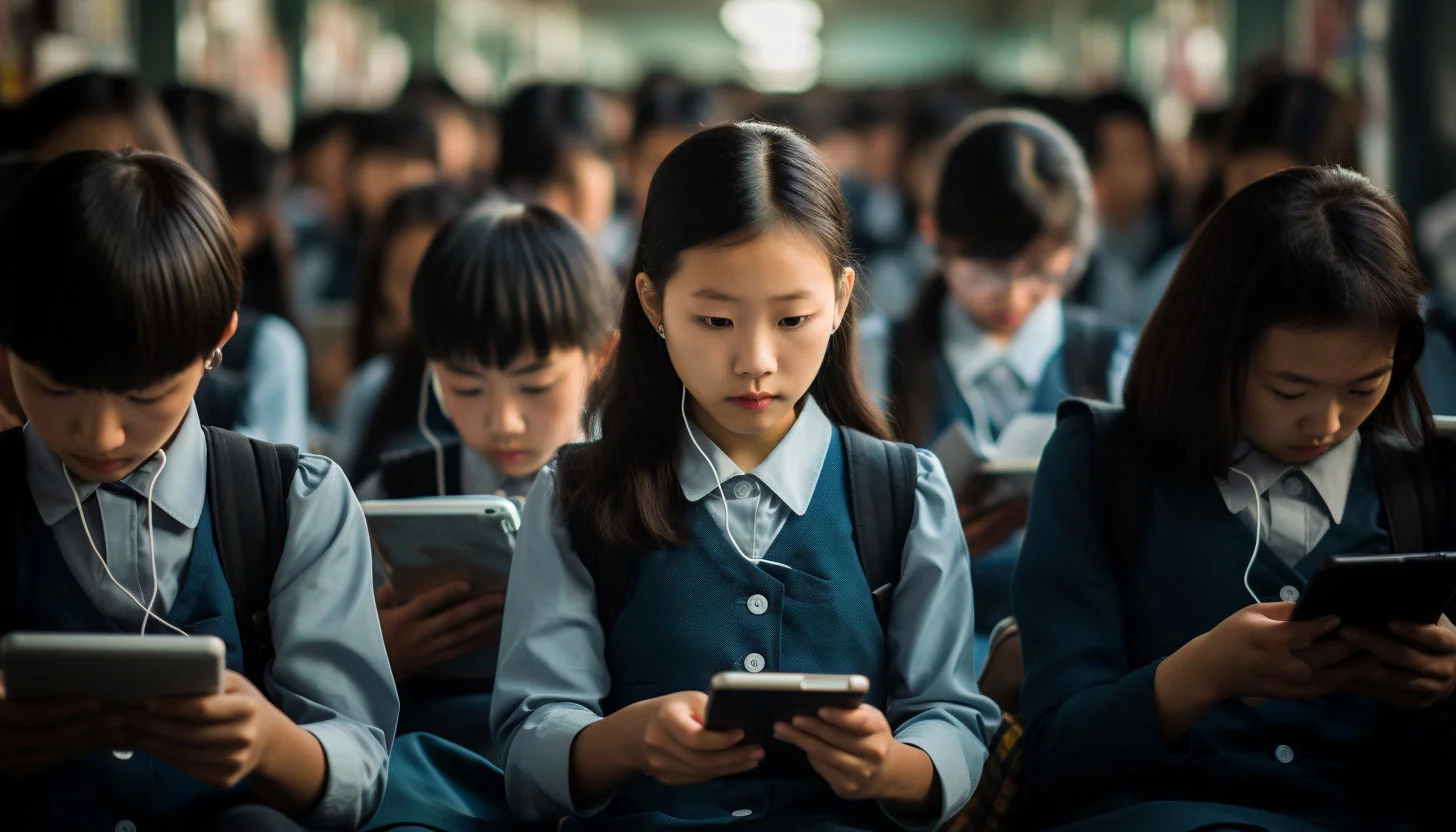In a bid to tackle the growing concern of smartphone addiction among teenagers, Chinese regulators have put forth a set of stringent rules aimed at curbing excessive phone usage among the youth.
The proposed regulations have ignited debates over their effectiveness and implications for the tech industry.
The Dangers of Teen Smartphone Addiction
With the proliferation of smartphones and easy access to the internet, smartphone addiction has become a pressing issue worldwide, and China is no exception. Authorities have been increasingly alarmed by the rising rates of myopia (nearsightedness) and internet addiction among the younger generation.
Prolonged and uncontrolled screen time has been linked to various health problems, including sleep disturbances, social isolation, and a decline in academic performance.
Introducing the Proposed Regulations
The Chinese regulators’ response to this worrisome trend is a set of proposed rules that seek to set limits on smartphone usage for individuals under the age of 18. If enacted, these rules would restrict young people to a maximum of two hours of smartphone use per day.
To enforce these restrictions effectively, smart device providers would be required to implement a “minor mode,” a feature that would automatically restrict internet access on smartphones for users under 18 during specific hours. From 10 pm to 6 am, young users would have limited access to the online world, encouraging a healthier balance between screen time and rest.
Furthermore, the proposed regulations outline tiered time limits based on age groups. Children under eight years old would be allowed only eight minutes of daily smartphone usage, those aged eight to 16 would have a one-hour limit, and teenagers aged 16 to 18 would be permitted a maximum of two hours per day.
The Divided Expert Opinions
Opinions on the potential effectiveness of these measures are divided. Supporters of the proposed regulations believe that they are a crucial step towards addressing the issue of addiction and promoting a healthier lifestyle for the younger generation. By instilling discipline in smartphone usage from an early age, authorities hope to prevent the long-term negative impacts associated with excessive screen time.
However, critics argue that these regulations could have unintended consequences for the tech industry. Some experts express concerns about the financial burden on smart device providers and the compliance challenges they may face in implementing the “minor mode” feature. These critics advocate for a more comprehensive approach that tackles the root causes of addiction through education and mental health support.
The announcement of the proposed regulations had an immediate effect on Chinese tech firms, as shares declined in response to the news. However, the rules are not set in stone yet. Regulators have opened the proposed regulations for public feedback until September 2, allowing stakeholders and the general public to weigh in on the potential impact and effectiveness of the measures.
A Broader Regulatory Clampdown
The proposed regulations aimed at curbing smartphone addiction among teenagers are part of China’s wider regulatory measures targeting domestic technology giants. This move comes after the government’s previous curfew on online video game players under the age of 18, signifying Beijing’s ongoing endeavors to enhance control over digital activities within the nation.
As China grapples with the challenges posed by smartphone addiction among teenagers, the proposed regulations represent a significant step in the battle to find a balance between technology use and the well-being of the younger population. The ongoing debate surrounding these measures underscores the complexity of addressing smartphone addiction, with stakeholders seeking to strike a balance between safeguarding public health and supporting the growth of the tech industry.




